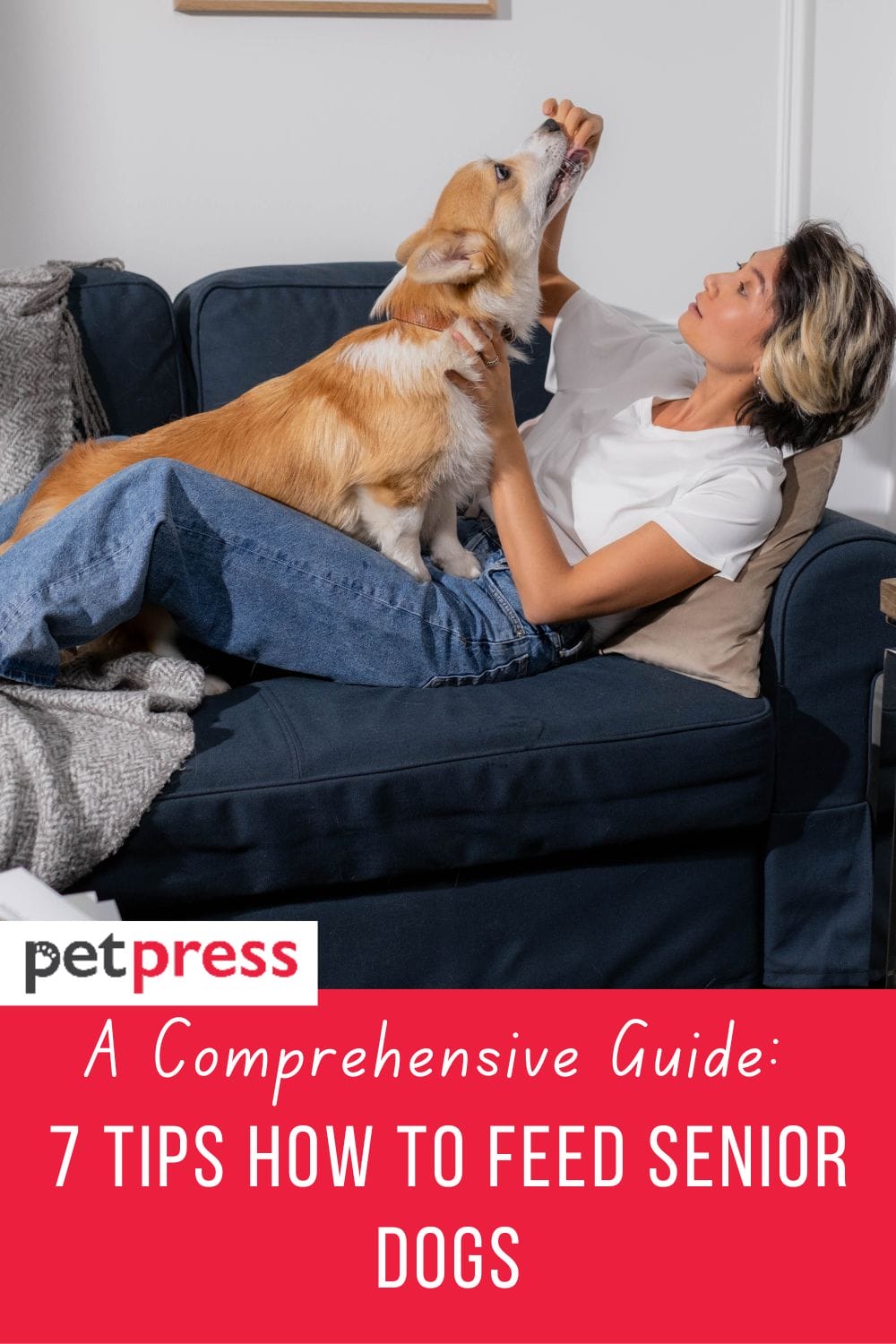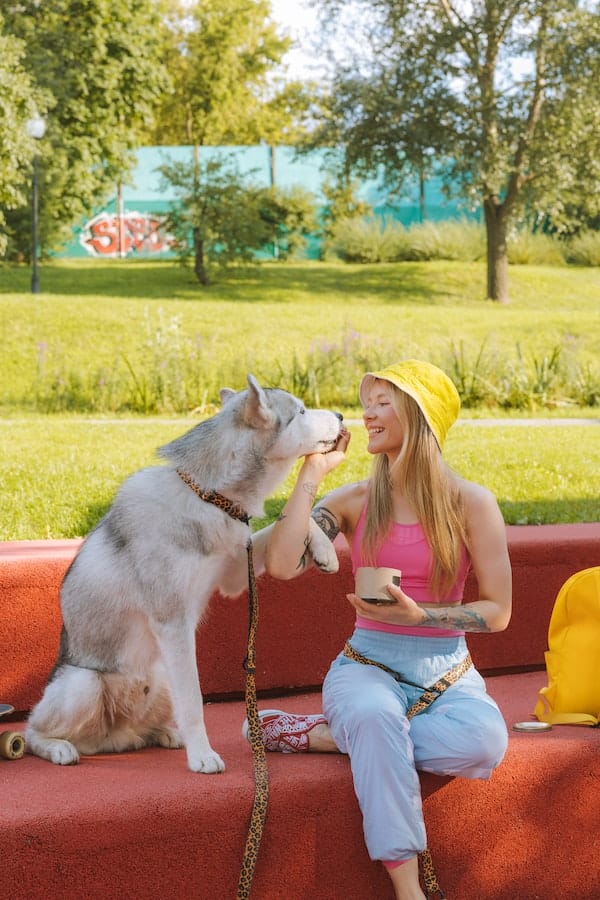
Hey there, fellow pet parent! Considering you’re here, it’s likely you’re the proud owner of a venerable, grey-snouted friend.
As our dogs age, their dietary needs shift just like ours do.
Don’t you agree that understanding these needs is crucial for their well-being?
Well, we’re about to walk you through the critical aspects of feeding senior dogs.
Why is Proper Nutrition Important for Senior Dogs?
Let’s delve deeper into why proper nutrition is so crucial for our senior canine companions.
Think of it as a journey, where each step signifies a specific reason that underscores the importance of diet in their golden years.
- Slowing metabolism: Just like us, as dogs age, their metabolism tends to downshift. They’re not as active, and their energy requirements decrease.
- Managing health conditions: Proper nutrition can help manage, and even alleviate, many of these health issues.
- Boosting immunity: A diet packed with necessary vitamins and minerals can boost our old buddy’s immunity, helping them ward off diseases more efficiently.
- Enhancing digestive health: A diet high in fiber can help senior dogs with probable constipation or other digestive issues, making their ‘bathroom’ time less of a struggle.
- Promoting mental health: Nutrition can impact mental health, and it’s true for our dogs too. Antioxidants, vitamins E, and C, and certain other nutrients can enhance cognitive function in senior dogs, keeping their minds sharp.
- Preserving muscle mass: High-quality proteins in a senior dog’s diet can help preserve muscle mass, allowing them to stay stronger and more active.
- Keeping skin and coat healthy: Essential fatty acids in their diet can aid in keeping their skin healthy and coat shiny, making them feel good in their skin.
Understanding the Nutritional Needs of Senior Dogs
Adjusting a senior dog’s nutrition is somewhat like altering our diets to better fit our lifestyle and age, isn’t it?
Here’s a comprehensive list detailing the key nutritional needs of our beloved greying friends.
- Lower calorie intake: As dogs age, their activity levels decrease. Therefore, a diet lower in calories but equally satisfying is essential to prevent unnecessary weight gain and related health issues.
- High-quality proteins: High-quality protein in their diet can help preserve their muscle strength and mass.
- Increased fiber: Senior dogs can face digestion-related issues, and a diet high in fiber can make their ‘post-meal processes’ smoother.
- Essential vitamins and minerals: Boosting your senior dog’s diet with essential vitamins and minerals is critical for their overall health, from boosting immunity to improving coat health.
- Supplements for joint health: Supplements like glucosamine and chondroitin can support joint health, helping senior dogs move around with less discomfort.
- Omega-3 fatty acids: Omega-3 fatty acids can help maintain healthy skin and coat for our furry friends, giving them their version of a ‘good skin day’.
- Antioxidants: Antioxidants are like that secret weapon in a senior dog’s diet. They can help bolster the immune system and promote mental sharpness.

Choosing the Right Food for Your Senior Dog
Ensuring your four-legged pal gets the best nutrition might be easier than you think.
Let’s break it down into manageable chunks, shall we?
AAFCO compliance
Look for dog food that meets the standards set by the Association of American Feed Control Officials (AAFCO).
It’s kind of like looking for that quality assurance tag when buying appliances.
It assures you that the food contains the appropriate levels of nutrients required for your senior dog.
High-quality proteins
Remember those early gym days when protein was a major part of our diet for muscle building?
High-quality proteins play a similar role for our aging buddies.
They help maintain muscle mass, so your pooch stays physically robust in their senior years.
Balanced nutrients
Choosing a diet rich in essential vitamins and minerals is like hitting the jackpot for your dog’s health.
It can help keep their immune system strong, assist in maintaining a shiny coat, and even support good eye and brain health.
Consider their size and breed
Do you remember when a single-size T-shirt wouldn’t fit all?
Likewise, nutrition needs can vary based on a dog’s size and breed.
For example, small breeds might prefer smaller kibble while large breeds could benefit from formulations designed to support joint health.
Factor in health conditions
Just like we might switch to a heart-friendly diet if we have cardiovascular issues, the same goes for dogs.
If your dog has health issues like diabetes or kidney problems, some diets are specially formulated to help manage these conditions.
Low-calorie and high fiber
Can you imagine eating the same calorie-rich food we enjoyed in our youth, well into our 60s?
Probably not the best idea, right? Senior dog food options should be lower in calories but high in fiber.
It keeps their weight in check and their digestive systems running smoothly.
Something tasty
Let’s be honest, wouldn’t you enjoy a meal that’s both nutritious and tasty?
Your dog is likely the same.
It wouldn’t hurt to find a flavor your dog drools over — chicken, beef, or even a vegetarian option if they prefer!

How to Feed Your Senior Dog
eeding our senior dogs is about more than just filling the bowl and sticking to the routine.
Just like we’d get bored with eating the same meal every day, our dogs may feel the same.
Here are some useful tips to keep things interesting and healthy for your senior pup.
More frequent, smaller meals
Don’t you agree that smaller, more frequent meals feel better on the stomach and are easier to digest than larger, heavier ones?
It can be true for our dogs too.
Consider splitting their daily food intake into smaller meals spread throughout the day to aid digestion and maintain steady energy levels.
Introduce variety
Is there something exciting about trying different cuisines?
Surely!
Consider introducing some variety into your dog’s diet while keeping it balanced and nutritious.
For instance, you could alternate between wet and dry food, or introduce occasional healthy treats.
Gradual diet changes
Imagine abruptly switching from your favorite cuisine to something entirely different.
A bit unsettling, isn’t it?
The same could be true for our dogs.
If you’re changing their diet, do it gradually over one to two weeks to avoid any digestive upsets.
Monitor their weight
You know how we sometimes keep a check on our weight to ensure we’re in the healthy range?
Regular weight checks for your senior dog can help adjust their food intake as needed, keeping obesity and related health issues at bay.
Hydrate, hydrate, hydrate
Remember how refreshing it feels to sip on a glass of water after a long walk, especially in the hot sun?
Keeping fresh water available at all times for your senior dog is crucially important for their health and comfort.

Consider their dental health
Ever tried enjoying a meal with a toothache?
It’s hard, right? As dogs grow older, dental issues can become a concern.
Soft food options or specifically designed kibble can make eating less stressful and more enjoyable for them.
Consult your vet
Getting a professional’s advice on feeding your senior dog, kind of like visiting a nutritionist, can be very helpful.
Your vet can provide valuable guidance based on your dog’s specific health conditions and nutritional needs.
Wrapping Things Up
Do you know how we adjust our meals as we grow older, trading junk food for healthier options?
The same concept applies to our senior canine companions.
For us, it might just seem like a gentle change in their feeding bowl, but for them, it’s a huge leap towards a healthier life.
Personalizing their diet, and tailoring it to their unique needs, does more than just keep them fit.
It’s like fine-tuning a musical instrument — it makes their life song that much sweeter.
It adds a spring to their step and a twinkle to their eye. And isn’t that all we truly want for our furry pals?
Seeing them bounce around, happy, and healthy, is a testament to the love we share, don’t you think?
- Essential Oils Safe for Cats: What Every Pet Owner Needs to Know - May 23, 2025
- Herbal Supplements for Cats: A Natural Approach to Cat Wellness - May 21, 2025
- Signs of a Healthy Cat Coat: What Every Cat Owner Should Know - May 19, 2025


GIPHY App Key not set. Please check settings